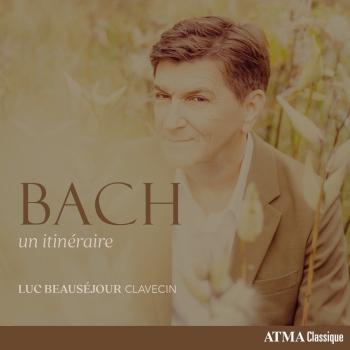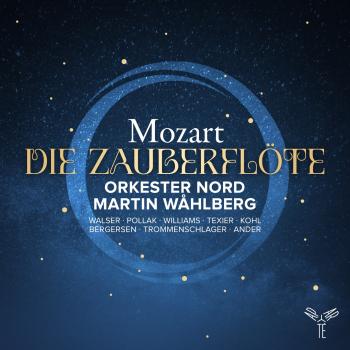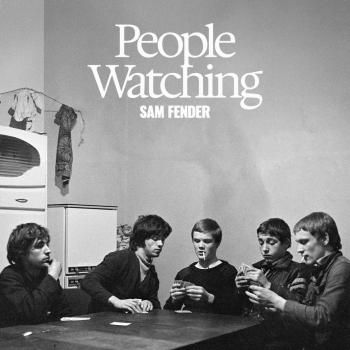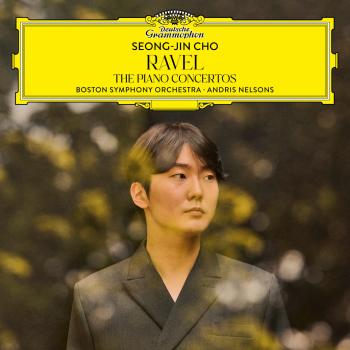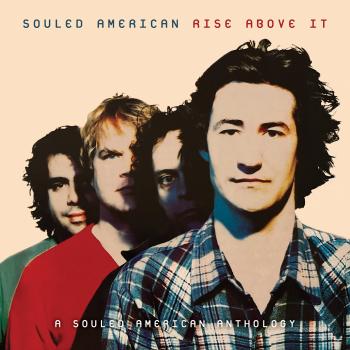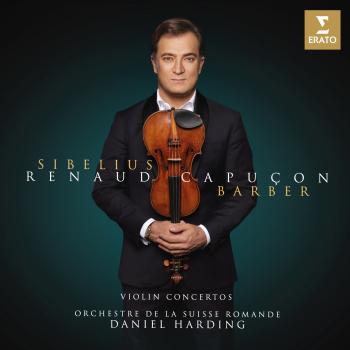
Stanislaw Moniuszko: Halka Capella Cracoviensis & Jan Tomasz Adamus
Album info
Album-Release:
2021
HRA-Release:
22.10.2021
Label: deutsche harmonia mundi
Genre: Classical
Subgenre: Vocal
Artist: Capella Cracoviensis & Jan Tomasz Adamus
Composer: Stanislaw Moniuszko (1819-1872)
Album including Album cover Booklet (PDF)
I`m sorry!
Dear HIGHRESAUDIO Visitor,
due to territorial constraints and also different releases dates in each country you currently can`t purchase this album. We are updating our release dates twice a week. So, please feel free to check from time-to-time, if the album is available for your country.
We suggest, that you bookmark the album and use our Short List function.
Thank you for your understanding and patience.
Yours sincerely, HIGHRESAUDIO
- Stanislaw Moniuszko (1819 - 1872): Halka: Act 1:
- 1 Moniuszko: Halka: Overture 07:26
- 2 Moniuszko: Halka: Act 1: Niechaj zyje para mloda 03:50
- 3 Moniuszko: Halka: Act 1: Poblogoslaw, ojcze panie 07:16
- 4 Moniuszko: Halka: Act 1: Czego ta dziewka tutaj przybywa (Recitative) 00:35
- 5 Moniuszko: Halka: Act 1: Jak mój wianuszek zwiadl potargany 02:04
- 6 Moniuszko: Halka: Act 1: Mój Jasko! (Duet) 07:52
- 7 Moniuszko: Halka: Act 1: Ah, widzisz Jontku 03:02
- 8 Moniuszko: Halka: Act 1: I ty mu wierzysz (Aria) 04:46
- 9 Moniuszko: Halka: Act 1: Puszczajcie mnie (Finale) 04:50
- Halka: Act 2:
- 10 Moniuszko: Halka: Antrakt 02:38
- 11 Moniuszko: Halka: Act 2: Po nieszporze, przy niedzieli 04:02
- 12 Moniuszko: Halka: Act 2: Lecz cóz to 06:14
- 13 Moniuszko: Halka: Act 2: Tak to z panami 02:01
- 14 Moniuszko: Halka: Act 2: Dobrze zescie tu gromada 09:18
- 15 Moniuszko: Halka: Act 2: Oj wesolo (Duet) 02:41
- 16 Moniuszko: Halka: Act 2: Ojcze z niebios Boze, Panie! 01:27
- 17 Moniuszko: Halka: Act 2: Ha! Dzieciatko nam umiera 09:33
- 18 Moniuszko: Halka: Act 2: Juz za pózno (Finale) 01:04
Info for Stanislaw Moniuszko: Halka
Keine vor 1858 geschriebene polnische Oper wurde so erfolgreich wie Stanislaw Moniuszkos Halka.
Capella Cracoviensis präsentiert die erste, zweiaktige Fassung von Halka, die 1848 in Wilna uraufgeführt wurde. Die Wilnaer Fassung ist die erste Orchesterfassung dieser Oper, deren Partitur unsere Zeit nicht überdauert hat. In dieser dramaturgisch sehr dynamischen Komposition werden einzelne musikalische Episoden als Teil der Szenen gestaltet; Rezitative, Arien und Chöre werden kombiniert.
Die romantische, melodienselige Oper »Halka« von Stanislaw Moniuszko ist die Nationaloper Polens und liegt in der Neuaufnahme der Capella Cracoviensis erstmals in der Urfassung auf historischen Instrumenten vor.
»Halka« gehört in die Tradition der lyrisch-romantischen Opern des 19. Jahrhunderts mit tragischem Ausgang – vergleichbar mit Bellinis »La Somnambula«. Die Geschichte eines Bauernmädchens zwischen adligem Verehrer und standesgleichem Liebhaber hatte Stanislaw Moniuszko mit melodiestarken Arien, wundervollen Chorszenen und vielerlei Tänzen wie Polonaisen und polnischen Kolorit komponiert. Die Capella Cracoviensis mit exzellenten Solisten stellt jetzt erstmals die 1848 in Wilna uraufgeführte zweiaktige Version auf historischen Instrumenten vor. Bekannter war bisher die spätere vieraktige Version. Ein neues, überzeugendes Plädoyer für ein bisher vernachlässigtes Opernkleinod!
Capella Cracoviensis:
Natalia Rubis, Sopran (Halka)
Sebastian Szumski, Baritone(Janusz)
Michalina Bienkiewicz, Sopran (Zofia)
Przemyslaw Borys, Tenor (Jontek)
Marek Opaska, Bass (Marszalek)
Przemyslaw Balka, Bass (Czesnik)
Jan Tomasz Adamus, Dirigent
Capella Cracoviensis
Semper in altum has been the guiding motto of Capella Cracoviensis for a few years now turning it into the most dynamically developing ensemble in Poland which specialises in period performance of old music. Thanks to the consistent support of the City of Krakow Capella Cracoviensis may implement ambitious projects in an uncompromising way and achieve the highest artistic level collaborating with outstanding musicians of similar sensitivity and courage. Those performing regularly with CC include Vincent Dumestre (Le Poème Harmonique), Fabio Bonizzoni (La Risonanza), Alessandro Moccia (Orchestre des Champs-Élysées), Andrew Parrott, Paul Goodwin and Ensemble Oltremontano, while guest concerts are given by Accademia Bizantina, Fretwork, Nachtmusique, Paul McCreesh, Giuliano Carmignola and Christophe Rousset (Les Talens Lyriques). Along with its concert activity Capella Cracoviensis explores the territory of Baroque and Classicist opera and has successfully staged Polish versions of Handel’s Amadigi, Mozart’s The Marriage of Figaro and Don Giovanni or Gluck’s Orfeo ed Euridice.
The talent of CC’s members, technically skilful and extremely flexible chamber musicians, has been recognised by such eminent personalities of the musical world as Fabio Biondi, Marc Minkowski, Le Poème Harmonique or the ensemble La Venexiana under the baton of Claudio Cavina. CC’s extensive repertoire ranging from Gesualdo’s neck-breaking mannerist madrigals to the 20th century avant-garde compositions and characterised by rare vividness and homogeneity of sound has resulted in intense collaboration with the authorities in period performance. The virtuosity of CC has also led to two publications for the prestigious French label Alpha / Outhere Music – Charpentier and Lully’s Te Deum (Alpha 952) and the complete set of Bach’s motets (Alpha 199) - as well as Bach Rewrite, a very well-received album for Decca Classics with the harpsichord concertos of the composer from Leipzig in which CC accompanies Piotr Orzechowski and Marcin Masecki performing on electro-acoustic piano.
Capella Cracoviensis has performed at outstanding European Festivals, which include Haydn Festspiele Brühl, Bachfest Leipzig, SWR Festspiele and Händel Festspiele Halle. It gives regular concerts abroad, at Vienna’s Konzerthaus, in Versailles, Brussles, Ghent, Lviv and Kiev. It was the first Polish ensemble to perform on the stage of Opéra Royal in Versailles with Adriano in Siria by Pergolesi.
In 2008 Jan Tomasz Adamus, an outstanding organist, harpsichordist, conductor and animator of musical life, became general and artistic director of Capella Cracoviensis. He has shaped his artistic personality in collaboration with many eminent singers while remaining in contact with the most important European centres of art recognising painting, sculpture, architecture or philosophy of art as a permanent counterpoint to all musical actions. His acceptance of this position at the invitation of the City of Kraków was one of the most debated transfers in the world of Polish culture in the recent years.
HISTORY: CC was established in 1970 at the initiative of the then-director of Krakow’s Philharmonic Jerzy Katlewicz who was requested by Stanisław Gałoński to create an ensemble specialising in period performance of old music at the philharmonic orchestra. Over the years, Capella Cracoviensis has become an independent organisation operating as a kind of a small philharmonic orchestra performing various repertoire ranging from Renaissance music to the world premieres of contemporary pieces.
Jan Tomasz Adamus
A conductor, organist, harpsichordist and culture creator specialising in period performance of classical music ranging from Renaissance polyphony to Romantic symphony and opera. He studied in Krakow and Amsterdam and taught at the Academy of Music in Wrocław for a number of years. He has prepared many Polish premieres of great international repertoire for period instruments, which include Bach’s St Matthew Passion; Handel’s Messiah, Theodora, Hercules, Amadigi, Sosarme, Tamerlano and Rodelinda; Beethoven’s Missa solemnis; Mozart’s Le nozze di Figaro and Don Giovanni, to name just a few.
He has performed at a number of prestigious festivals and venues, most recently at Wratislavia Cantans, the Festival of Polish Music, the concert hall of the Polish National Radio Symphony Orchestra, SWD Festspiele Schwetzingen, Bachfest Leipzig and Händel Festspiele Halle. In particular, he is esteemed for his performances of vocal and instrumental pieces.
In 2008 he was appointed General and Artistic Manager of Capella Cracoviensis, an institution of culture which is a chamber choir and period instrument orchestra based in Krakow. In the recent years Capella Cracoviensis has become an exemplary model of successful management as the orchestra belongs to the most important ensembles in Europe specialising in historical performance practice, while the reputation of the choir, because of the exceptional colour and vividness of sound, has been growing among the best record labels.
As a culture creator, Jan Tomasz Adamus stood behind the launch of Theatrum Musicum, a joint project developed by music institutions of Krakow which is turning into one of the biggest classical music scenes in Europe. Since 2000 he has been Artistic Director of the Bach Festival Swidnica, one of the largest and most recognisable festivals organised outside major centres of musical life and, at the same time, a remarkably organic and culture-forming event. His numerous recordings include solo organ repertoire, Polish old music, Romanticism on period instruments (Chopin, Schubert) and contemporary music (Arvo Pärt).
Recently, together with Capella Cracoviensis, he has carried out a number of extremely innovative stage projects including operas, crossover projects and social performances (Mozart’s Le nozze di Figaro, Händel’s Amadigi di Gaula, Gluck’s Orpheus and Eurydice, Monteverdi in a milk bar, Mendelssohn performed by a choir in the woods and Mozart’s Requiem as karaoke). He is involved in the work of Opera Europa, an international organisation for opera houses and festivals from across the world.
In Augustusburg, the best European ensembles dedicated to historical performance arise one after another. After Freiburger Barockorchester, Akademie für Alte Musik Berlin and Concerto Köln, there was Capella Cracoviensis with its brilliant debut in Brühler Schlosskonzerte at the Haydn Festival. Adamus applies the German layout of the orchestra placing the first and the second violins opposite each other, which benefits the clarity of the score. With his unique gesticulation he impels the orchestra to perform with fabulous precision. An extremely vibrant sound can be heard from each stand. It is true joy to be able to experience these pieces with such intensity. Fritz Herzog, Bonner General-Anzeiger 29 September 2013
It has been long since I heard Messiah performed in such an interesting way, effortless and clear, and, simultaneously, lyrical and full of drama. Jan Tomasz Adamus prudently developed the architecture of this grand work, dividing it in two parts where the first one did not end with famous Hallelujah, as is the usual scenario, but finished earlier, with Lift Up Your Heads, a chorus full of grace. He also made a subtle reference to Handel’s tradition of performing the oratorio by starting the second part with Adagio from Handel’s organ concerto. Superb performance followed this interesting concept. I cannot remember when was the last time when I heard a choir singing so beautifully with such a perfectly even voice boasting a surprisingly rich palette of timbres and dynamics. Also the orchestra with concertmaster Fabio Ravasi sounded uniform, as if it were one instrument. One could feel it that each musician of Capella Cracoviensis thoroughly considered this interpretation and co-creation was a profound experience for them. The entire performance was one of the most interesting interpretations of Handel’s oratorios that I have ever had the pleasure to listen to.
Anna Woźniakowska, “Ruch Muzyczny” 1/2015
The concert version of Pergolesi’s opera Adriano in Siria staged in Versailles will be remembered as a beautiful experience, graceful and elegant, which was appreciated by the audience. The party responsible for this success, Capella Cracoviensis conducted by Jan Tomasz Adamus, is almost finitely perfect. It is a miracle of equilibrium, an excellent match for the beautiful and balmy acoustics of the Royal Opera which preponderates just like the main character of this opera seria. Great diversity of colours and accents excellently tailored for Pergolesi’s music, subtle variations of intensity and delicate legato determine the arising impression of elegance.
Booklet for Stanislaw Moniuszko: Halka

